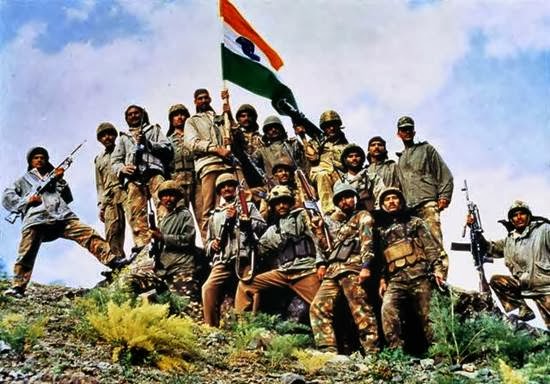 One newspaper memory lingers from the terrifying months of the Kargil war. There were two photos side by side on the front page of a national daily. One celebrating India’s win over Pakistan in a World Cup match and another one referring to the Army recapturing a key sector, if I remember correctly. In their head, the media had equated war with sport as if a victory on a cricket field and a few thousand soldiers putting their life on the line to capture lost ground were one and the same. As if war in the final analysis was like a cricket match that had to be played so that we could collectively cheer, pump the air and feel vindicated.
One newspaper memory lingers from the terrifying months of the Kargil war. There were two photos side by side on the front page of a national daily. One celebrating India’s win over Pakistan in a World Cup match and another one referring to the Army recapturing a key sector, if I remember correctly. In their head, the media had equated war with sport as if a victory on a cricket field and a few thousand soldiers putting their life on the line to capture lost ground were one and the same. As if war in the final analysis was like a cricket match that had to be played so that we could collectively cheer, pump the air and feel vindicated.
**
Television cameras intruded into sensitive war zones, turning the spotlight on war heroes like Captain Vikram Batra without worrying if by doing so they were compromising their safety. Batra had memorably said, “Yeh Dil Maange More,” and we needed to hear that, didn’t we? When he died, we all cried but the loss was irreplaceable only for his family, his loved ones. He was not just a morale boosting television byte for them. He was a son, a brother, a lover, a friend who never came back from war. Because let us face it, what we were cheering for from the other side of the TV screen like it was some kind of a sport, was war.
**
While visiting my relatives in Palampur, I saw from a distance, his house and the house of Captain Saurabh Kalia, a young boy who was tortured to death as a prisoner of war. This was before thought trends caught fire on social media but I still remember receiving a forwarded letter written by Saurabh’s heartbroken father NK Kalia asking for justice for his child. A parent can never get a sense of closure or peace after suffering what he and Saurabh’s mother Vijaya did. The war never ends for those who lose their loved ones to it. No matter what news headlines say, what blood sniffing news anchors advocate, what uninformed actors may tweet or posturing leaders may proclaim, nobody ever wins a war because every life lost is an opportunity lost for a saner world for all of us. When we bay for the blood of our presumed enemies, we are not the ones sending our sons and daughters to battle. We are presuming that there will always be enough young soldiers willing to die for us though we never remember them except when the country is in a crisis, man made or otherwise.
**





